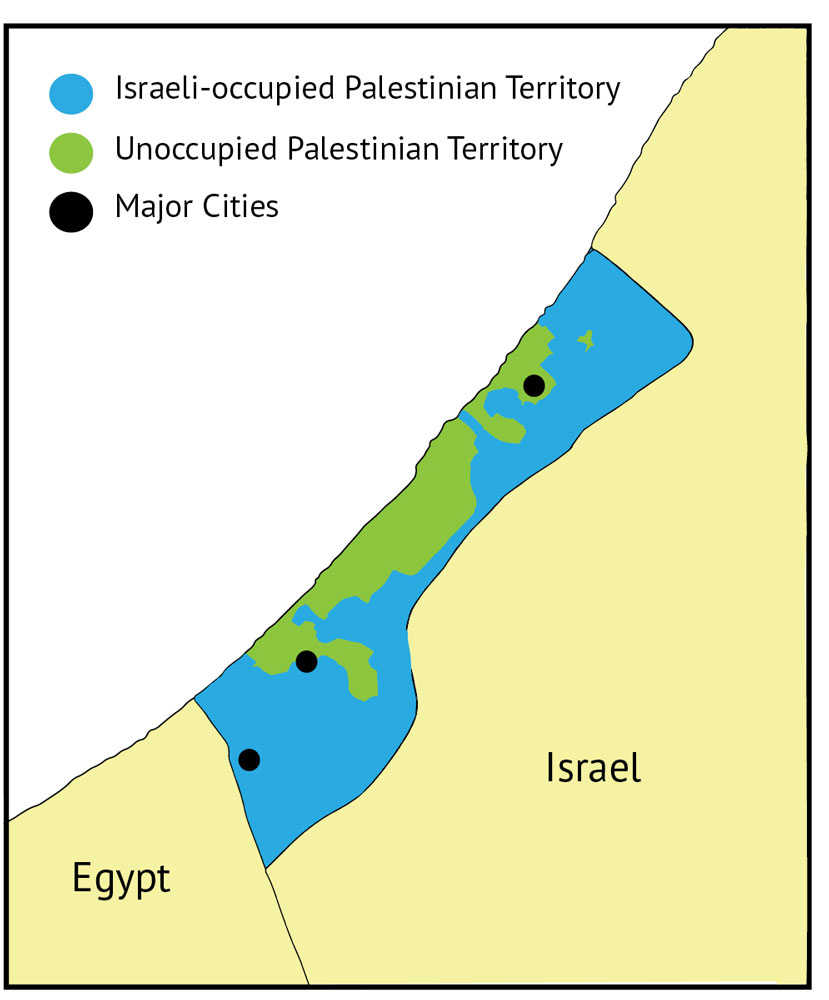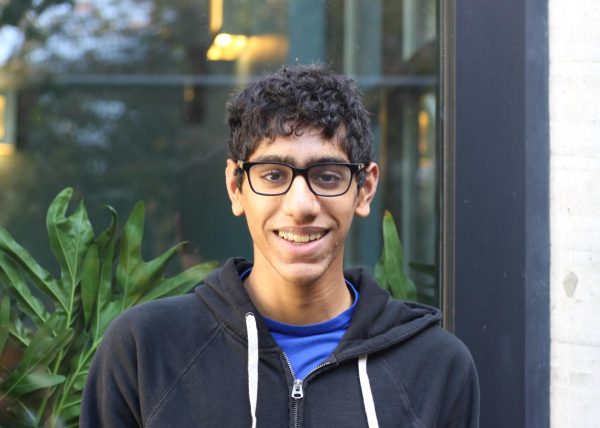Oct. 7 marked two years since the Hamas attack on Israel, and the start of the war in Gaza. Even 7,000 miles away at UPrep, students, affinity group leaders and teachers continue to grapple with the weight of the conflict.

Sophomore Anoushka Bollag, a Jewish Student Union co-leader, has been greatly affected by the war and the impact it has caused on people she’s close to.
“I have family and friends who live there [Israel]. And also, I have social media, and that has had a large effect. Seeing stuff all over the internet has been a lot,”Bollag said.
Senior Aslan Malik, a co-leader of the Middle Eastern Student Association, also received a constant and steady stream of photographs and visual media emerging from Gaza.
“I think just looking at photos, videos…It’s heartbreaking, and really hard to look at,” Malik said. “It takes a mental toll on you almost to the point that you don’t want to look at it.”
Sophomore Caleb Goldberg, a Jewish Student Union co-leader, has seen firsthand how the war has divided people.
“I’ve definitely seen it split apart people who were friends and relatives, just depending on their interpretation of the conflict, and what their views are,” Goldberg said.
Malik is also a member of the Muslim Student Association and has discussed the conflict with his peers, both in MSU and school-wide.
“We talked about how we can address this on a school-wide level,” Malik said. “They hosted something [a presentation] post-Oct. 7 about the history of Palestine and the suffering that’s going on there.”
Goldberg emphasizes that difficult discussions about the war offer an opportunity to have productive dialogue within the community.
“I think it is always good to debate and to discuss,” Goldberg said. “I think that UPrep’s classes, especially history classes, focus on critical thinking. And I think that this is a good medium to have these discussions.”
History teacher Patrick Kuster has taught many classes on sensitive topics such as Antisemitism, Islamophobia, and the war in Gaza, even amidst an American culture that skews away from teaching about such topics.
“I feel, in this culture, we often dance around controversies. We shy away from controversy, and I think that is really problematic,” Kuster said. “In my classes, [when addressing controversial topics] I try to work with original documents, so that I let the people speak and not so much myself.”
Sophomore Rian Sinha doesn’t have personal connections to the conflict and isn’t Jewish or Muslim, but is adamant that more discussions are needed about the war in order to foster empathy and understanding across different perspectives, and keep the community informed.
“As somebody who has participated in debate, I have seen firsthand that discussion is how we resolve problems, and dissent is how we make progress,” Sinha said.
Although Malik wants to have more conversations at UPrep, he has often felt like it is difficult to talk about controversies like the war, especially outside of affinity spaces.
“I think the vibe of the school was they didn’t want to talk about it,” Malik said. “We need to have honest and open discussions about it.”
Malik also emphasizes that continuing to be silent on the war is against the UPrep mission statement and he encourages more school-wide discourse.
“We need to be ‘intellectually courageous’ and ‘socially responsible,’ but we are being totally the opposite; we are being intellectually discourageous, being socially selfish by not talking about this,” Malik said. “It goes against what UPrep stands for.”



